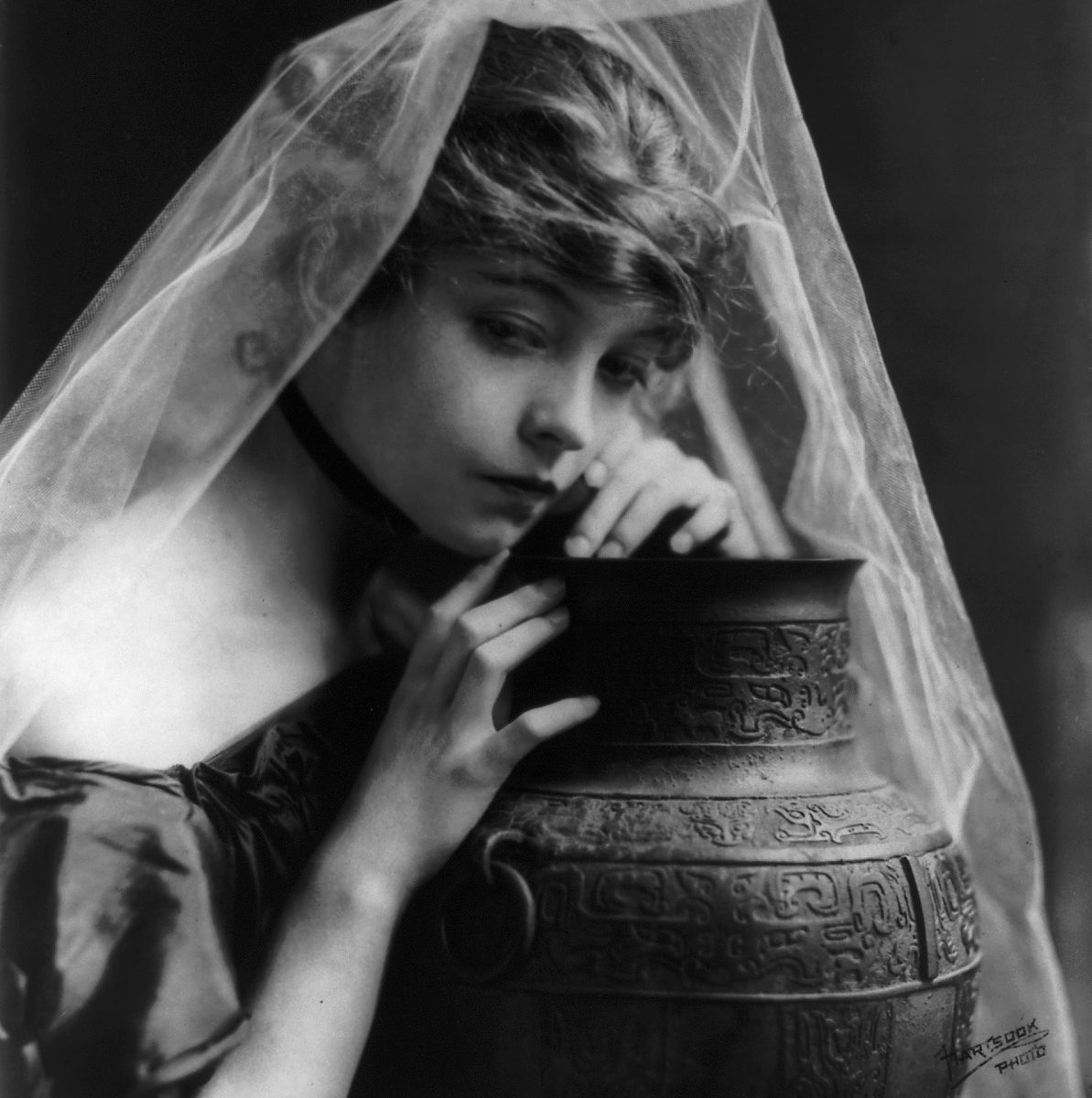Not only was Lillian Gish born in the right era, but she was also born with the ethereal beauty and grace to make her a star in the silent film industry. If Mary Pickford was the silent cinema’s greatest personality, Lillian was its greatest actress.
A consummate actress, Lillian seemed to take delight in suffering for the art form that became her obsession. In order to experiment, Lillian worked in extreme conditions such as starvation, intense heat and bitter cold. Soon, she became the quintessential silent screen heroine, lovely and open to suffering. However, despite her character’s’ apparent weakness, Lillian’s performances also let their inner strengths shine through.
Her stage debut took place in 1902 when she performed at The Little Red School House in Rising Sun, Ohio. From 1903 to 1904, with her mother and her sister Dorothy, Lillian toured in Her First False Step. The following year, she danced with the Sarah Bernhardt production in New York City. From 1908 to 1911, she moved around, staying with various relatives. She lived with her aunt in Massillon, Ohio, with her mother in East St. Louis, and briefly with her father in Oklahoma.
Lillian’s film debut came in 1912, when she and her sister starred in An Unseen Enemy under the direction of D.W. Griffith. In 1913, during the production of A Good Little Devil, Lillian collapsed from anemia during a run of the play.
That same year, in The Mothering Heart, Lillian started showing signs of the emotional power hidden in the seemingly frail and hauntingly beautiful actress. Griffith utilized Lillian’s aura to its fullest to develop the image of the suffering heroine. She also demonstrated an intense anger as shown in the same film, when she beats a bush after the death of her child. This intensity was present in all her films thereafter. Broken Blossoms is arguably Lillian’s greatest silent film. The terror she expressed as her drunken father breaks down the door to the closet she was hiding in was communicated directly to the audience. She displayed that same intensity in Way Down East, when she baptizes a dying baby and in The Wind, where she roams, dying, through the streets of Montmartre. In 1920, she directed Dorothy Gish in Remodeling Her Husband, and in 1922, she made Orphans in the Storm, her last film under Griffith’s direction. She joined Metro-Goldwyn-Mayer in 1924 and made her first “talkie” One Romantic Night in 1930. She then returned to the stage in Uncle Vanya.
During the 1930s, Lillian began working in radio. She made her television debut in 1948 with the Philco Playhouse production The Late Christopher Bean. In 1969, Lillian began giving the film lecture Lillian Gish and the Movies: The Art of Film, 1900-1928.
Lillian has been honored with many of the motion picture industry’s top honors, including an honorary Academy Award, The American Film Institute Life Achievement Award and the D.W. Griffith Award for lifetime achievement.
Lillian’s combination of fragility and strength, as well as her rare beauty and brilliant performance on screen, made her one of the greatest stars in silent films. She will always be remembered as one of the pioneers in the motion pictures industry.

